One of Pickett Street’s many specialties is helping buyers find “house hacks” to significantly increase the return on real estate investments. “House hacks” include single-family residential homes with in-law or mother-in-law apartments (MIL) or other additional dwelling units, either attached to or detached from the house (ADU or DADU).
For example, a split-level home with a separate entrance and kitchen in the basement allows homeowners to rent this space for extra income. Or, a buyer might invest in a duplex so that they can live in one of the units and rent out the other unit to cover their mortgage.
According to Pickett Street’s Jesse Moore, house hacks are one of the smartest investments for empty nesters who are moving toward retirement. Empty nesters who are considering downsizing can buy “house hacks” to earn passive income through their extra space. Then, this extra income can go toward dreamy post-retirement activities like finally making that Hawaii trip happen.
Pickett Street recently helped Director of Operations Margaret Smith’s parents find the right empty nester investment house hack—a rambler without stairs, which is a smart buy for empty nesters, and with a detached ADU. Margaret’s parents currently rent out this ADU. Not only does it save them $1,000 a month on their mortgage payment, they also earn an additional $1,100 every month from rent payments (these numbers combined equal a $25,000/year difference!).
For more information about how you can invest and earn for your retirement, or for whatever else, reach out to Pickett Street at info@pickettstreet.com or (425) 502-5397. In the meantime, here’s what to know about house hacks for empty nester investors.
1. Seattle recently passed ADU-friendly legislation.
After a couple years of setbacks, Seattle’s city council voted in July to allow the construction of more and larger backyard cottages in all neighborhoods. They also voted to remove the requirements property owners live on site and provide off-street parking.
Councilmember Mike O’Brien asserts that this legislation will act as “a gentle and environmentally-sustainable way to add living options in response to the city’s population growth” and that it will “open up pricey neighborhoods to people who can’t afford to buy or rent single-family houses.”
The AARP adds that the legislation will make it easier for retired and senior individuals to earn passive income and afford to live in previously unaffordable neighborhoods in Seattle. It will also make it easier for parents to live with their adult children, or vice versa.
2. ADUs are highly valued features.
The high value of ADUs is partly due to the fact that multigenerational living is on the rise. In 1980, only about 12% of the U.S. population lived with multiple generations under one roof. In 2016, 20% of the population lived with multiple generations—a record number of 64 million residents.
Real estate experts note that “not only can an ADU or DADU (Detached Auxiliary Dwelling Unit) provide additional income, they are also highly desirable features for millennial buyers and will add value to your home when you decide to sell.” Also, ADUs can be particularly helpful for baby boomers who want to live on a mini family compound or who want to defer some of their mortgage payments, taxes, and insurance with rental income.
For a adorable examples of a Seattle home with an ADU, check out this multi-generational home with a backyard cottage. And for more information, contact Pickett Street at info@pickettstreet.com or (425) 502-5397.
